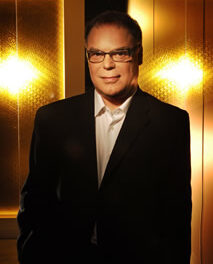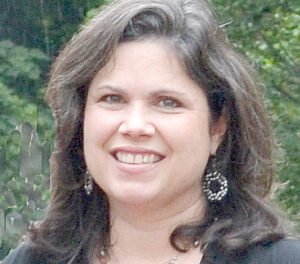The Brevard Music Center’s programming for this children’s concert in Whittington-Pfohl Auditorium seemed to embody an intriguing set of underlying assumptions about these younger audience members — that they need not be pandered to with only pops concert fare, that they are capable of listening to serious music over an extended period of time, and that they require role models on which to model their own artistic aspirations. There were youngsters there, to be sure, but also plenty of adults who are loyal to the Center and to these Sunday afternoon concerts in particular.
The program of two “child friendly” outer works — the brief Kabalevsky Overture to Colas Breugnon, Op. 24 and Prokofiev’s Peter and the Wolf, Op. 67 — framed the weighty and serious Liszt Piano Concerto No. 1 in E- flat with wunderkind Vijay Venkatesh as soloist. Maestro Ken Lam conducted the Brevard Festival Orchestra, a mixed ensemble of the Center’s college and high school division students and Artist Faculty. Two faculty members — Marjorie Bagley and Conrad Alexander — anchored the key positions of concertmaster and xylophonist, respectively. BMC Artistic Director Keith Lockhart was the celebrity narrator for the Prokofiev. This performance was sponsored by the United Community Bank, with Jacquelyn and Bruce Rogow as Season Sponsors.
Mr. Venkatesh’s meteoric rise to stardom is as breathtaking to read about as his playing is to hear. At only 21 he has won a long list of concerto competitions, has played in major halls, on the radio, and has been a prize-winner on the global scene. An alumnus of the Brevard Music Center, he began study at the age of three under Aleli Tibay, and is now studying privately with Norman Krieger, a distinguished Professor of Keyboard Studies at the Thornton School of Music, University of Southern California and a member of the Brevard Music Center’s Artist Faculty.
The Kabalevsky Overture was a brilliant concert opener. Short, scintillating and rhythmically catchy, its passages for the percussion — especially the extended xylophone licks played so well by Mr. Alexander — were guaranteed to grab the listeners’ attention. The tempo was a brisk one, resulting in a few problems in ensemble, but these were minor compared to the overwhelmingly positive and energized interpretation rendered by this young orchestra.
The Liszt Piano Concerto is mainstream adult concert fare, and its appearance on this concert may have stretched the patience of those youngsters unaccustomed to listening for longer periods of time. What began after the conclusion of the Kabalevsky as a sort of introduction to the orchestra with the demonstration of individual percussion instruments unfortunately petered out with the Liszt, as there were no introductory remarks on either the style of this music, its phenomenal composer or the piano. In fact, there were no program notes for this concert at all. Those who were surely blown away by Venkatesh’s artistically mature performance despite his age were left to go home and research the piece to understand what had just transpired.
Liszt began this concerto in 1839, revised it over several years, and first performed it in 1855 with Hector Berlioz as conductor. Using the concept of thematic transformation, a sort of developmental variation process, the concerto’s two themes reappear again and again throughout the three movements. The brief first movement theme has additional semitones gradually added lower and lower, contrasting with a more expansive and dominating second theme. It affords ample opportunities for virtuosic display and the most intimate and tender moments, such as in the second movement, and Venkatesh, who plays with incredible dexterity and economy of motion, did both ends of the artistic spectrum equal justice.
The Prokofiev is, of course, that perfect piece that both delights and teaches. Absent from its pages steeped in innocence is any hint of the kind of artistic struggle for freedom of expression the composer waged against the Soviet state in the 1930s. The major themes, the characters in the narrative, were introduced prior to the performance. Lockhart threw in some slang in the narrative for fun (“Dude!”), Lam conducted brilliantly, and the orchestra played their hearts out. Kudos to all members of the orchestra, and especially to the principal “characters” for their polished playing: flutist Michael Avitabile, oboist Sophia Parente, clarinetist Zachary Manzi, bassoonist Kevin Grainger, horn players Richard Williams, Nicholas Miller, and William Keene. You gave us a memorable afternoon.













